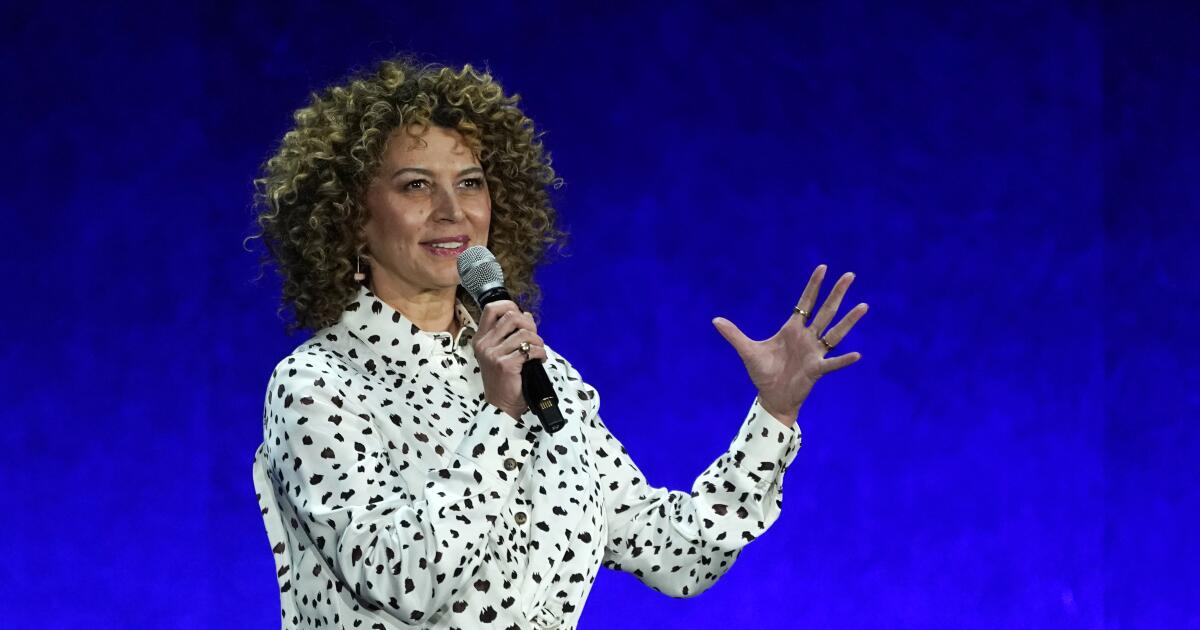Donna Langley, president of NBCUniversal Studio Group, said Friday at an entertainment industry legal conference that while artificial intelligence is “exciting,” guardrails must be put in place to protect labor, intellectual property and ethics.
In a wide-ranging conversation on stage at the UCLA Entertainment Symposium, the media director first emphasized that “labor must be right,” a declaration that drew applause from the audience.
“We shouldn’t be infringing on people’s rights,” she said, adding that we need “very good, smart, sophisticated copyright laws around our IP.”
But once these issues are properly addressed, filmmakers and content partners also need “the creative freedom to use the technology,” Langley said. She described AI as like any other technological innovation the film industry has encountered throughout its history, and said she was interested in anything that could “advance creativity.”
“As an industry and a business, we are better off embracing it and sticking to those pillars than pretending it doesn’t exist,” she said. “I think it’s exciting. That would be interesting. But we have to get our ethics right.”
Langley and Universal Pictures had a big year last year with “Oppenheimer,” which grossed $975 million at the global box office and won numerous Oscars, including Best Picture.
Langley is not the first studio mogul to comment on AI and its role in the entertainment industry. Last month, Sony Pictures Entertainment CEO Tony Vinciquerra told analysts and investors that AI would reduce production costs.
AI has emerged as a major issue in Hollywood as technology companies increasingly attract the attention of studios and industry insiders. But it’s a delicate dance, as entertainment executives want to avoid harassing actors, writers and other workers who see the technology as a threat to their jobs.
Rapidly advancing technology was a key issue in last year’s dual union strike. Each agreement signed by the Writers Guild of America and the Screen Actors Guild-American Federation of Television and Radio Artists requires actors to grant permission to use their digital likenesses. Some AI protections were included, including provisions requiring that AI be protected and compensated.
